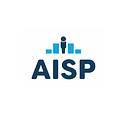AISP Equity in Practice Learning Community: Reflecting on our trip to Montgomery
Cross-sector data sharing and integration enable the use of multiple sources of information to better understand individual, family, and neighborhood experiences and conditions over time. With more cross-sector data, we can often better capture both the causes and impacts of complex social issues and improve programs, policies, and funding approaches to build stronger communities. Yet, the way that cross-sector data are collected and used can also reinforce legacies of racist policies and produce inequitable resource allocation, access, and outcomes.
At AISP, we support users of cross-sector administrative data and those building data integration capacity to center racial equity in their data practices. Our Equity in Practice Learning Community (EiPLC) facilitates peer learning across sites, funds projects to support equity-oriented and community-led inquiry, and co-creates guidance and new models for the field.
In October 2024, we convened the EiPLC in Montgomery, Alabama, with our Cohort 2 sites:
- California Cradle-to-Career Data System (Sacramento, California)
- Minneapolis and Saint Paul (MSP) Education Equity Data Hub and Generation Next (Twin Cities, MN)
- Promise Partnership Utah (Salt Lake City, UT)
- San Francisco Department of Children, Youth, and Their Families & San Francisco Unified School District (San Francisco, CA)
Montgomery has an important and complex history; its legacy is one of resistance and civil rights, but also of injustice and pain. In preparation for the convening, we shared this video with participants to inform and reflect on the racist history of the city’s built environment. Most notably, the video shows how highways were intentionally placed to disrupt robust, thriving Black neighborhoods and their capacity to organize against racist policies. It is a good reminder of how much context about a place is not immediately visible to visitors.
Day 1. On our first day in Montgomery, participants spent time getting to know each other, sharing bright spots from their last year of work, and participating in workshops led by AISP staff and Equity Fellows. Other sessions included:
- A grounding session to think about how our identities, politics, and individual growth impact our relationship to white supremacy and commitment to equity, led by Blu Lewis and Sue Gallagher, EiPLC Fellows
- An interactive session on participatory governance, led by EiPLC Fellow Bob Gradeck and AISP’s Della Jenkins, with facilitated discussion in site teams about next steps for enhancing community voice in their governance structures
- A presentation from Cohort 1 mentors from Broward County, Florida who shared how they used an interactive arts exhibit called Echoes of Empathy to engage community members and policymakers in dialogue about the findings of their most recent Community Participatory Action Research (CPAR) project on the involuntary commitment of young people in mental health crisis
Day 2. On the second day, participants visited the Equal Justice Initiative (EJI) Legacy Sites, moving at their own pace through the experience. EJI, founded in 1989 by Bryan Stevenson, “provides legal representation to those who have been illegally convicted, unfairly sentenced, or abused in state jails and prisons, and provides re-entry assistance to those formerly incarcerated.” Stevenson, a public interest lawyer and author of Just Mercy, also created the EJI Legacy Sites, which offer spaces to reflect and learn about the country’s history of racial injustice. As EJI writes, “the power in history is in telling the truth.”
The Legacy Sites document the truth of slavery, racial violence, and mass incarceration, bringing together meticulous research and breath-taking art to educate the public and honor the lives of enslaved people and their descendants in their fight for justice.
AISP participants had the opportunity to explore three Legacy Sites:
- The Legacy Museum: From Enslavement to Mass Incarceration
- The National Memorial for Peace and Justice
- Freedom Monument Sculpture Park
Following the experience, processing and group discussion was available for participants in affinity groups.
“It was truly one of the most impactful professional experiences I’ve had.”
– EiPLC participant speaking about the convening & visiting the EJI sites
Day 3. The next morning, participants came together for a guided meditation to process and reflect on their experiences at the Legacy Sites. After this regrounding, site teams worked on concrete plans to bring lessons back to their colleagues and communities to advance their data equity work.
The cohort will build on this experience over the next year of the EiPLC to engage in work that centers community voice and lived experience. AISP will also draw on our experiences in Montgomery and visiting the EJI sites as we update A Toolkit for Centering Racial Equity throughout Data Integration and prepare to release the new version in early 2025.
We are so grateful for the participants who came along on this journey with us and the funders who made it possible. A big thank you also to our fabulous hosts at the Co-Lab Collective and the EJI Legacy Sites staff we met along the way.
Be sure to share this post with anyone who would benefit. If you have the opportunity to visit EJI and the Legacy Sites in person, it will be a deeply important, moving, and necessary experience. Ticket admission to the Legacy Sites is just $5.
Further information on the Legacy Sites, including videos and reports, can also be found here. EJI’s website, which includes online resources related to its work surrounding criminal justice reform and ending mass incarceration, can be found here.
Subscribe to the AISP newsletter to keep in touch with our work here.
